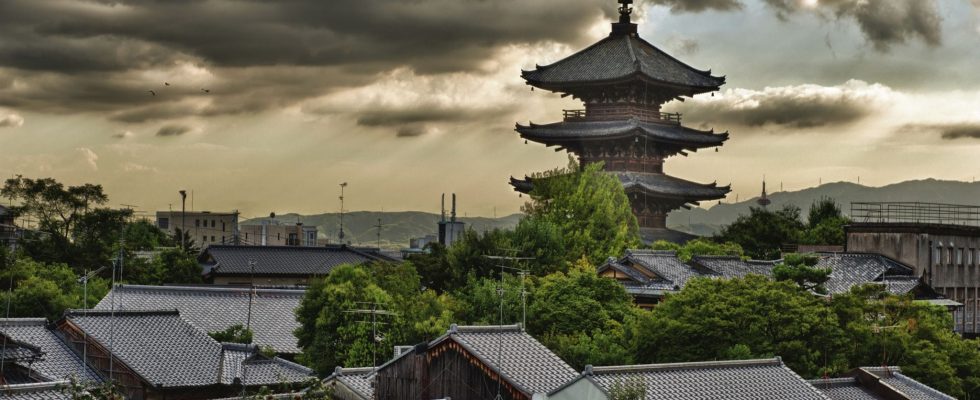From time to time, in a very ritualized detective world, a UFO arrives, a text which does not resemble any other because it is not burdened with one genre but mixes them to form a whole with the flavor of inimitable reading. The Black House by Yûsuke Kishi, published at the start of the year by Belfond, is undoubtedly one of them. Because the author is, in Japanese lands, an undisputed master of horror, several times rewarded, he does not hesitate to venture into the margins of “too much” (of blood, of madness) even unusual in the thriller. Because he is an economist by training, and because he began his career in insurance, he takes a scathing look at Japanese society and its excesses, close to a social noir novel.
The life of Shinji Wakatsuki, the main character of The Black House, is however very banal. Every day, in the office of the insurance company that employs him, he tracks down, in the death notices and requests for compensation made by the relatives of the deceased, the detail that does not add up, the attempted scam. . A routine that he follows with unfailing professionalism, even if he finds that “learning about the death of people who he didn’t even know existed was a more pleasant way to start the day.” . One day, he is invited by a man to observe a death. Apparently, it is a suicide, that of a 12 year old child, found hanged. But the atmosphere of the “black house” leads him to investigate further. Until you get lost.
Gore, burlesque… and horror
From then on, the novel becomes a separate object, where the atmosphere, admirably rendered by Diane Durocher’s translation, plays a central role. The smells, the noises, the anonymous phone calls that saturate the answering machine become sources of anxiety in a seemingly ordinary world. The insects, which haunt the hero’s dreams, indicate, through their behavior, what can happen in a strange similarity with human beings and add to the singularity of the text. The author slips in a pinch of gore, with arms and legs cut off as if nothing had happened, and burlesque to let the reader breathe. The list of causes of accident where, under the number 816, appears “loss of control of the vehicle causing a road accident without collision” or 996, “disability caused by a nuclear weapon in the context of a war “, is tasty.
In his previous novel – and the first translated into French – published two years ago, The Lesson of Evil, Yûsuke Kishi was already using this astonishing cocktail. It tells the story of a 1st grade class and their attractive head teacher. Mr. Hasumi, a young English teacher, spends most of his days solving with kindness and ingenuity the problems that his students encounter or create. But behind this facade, the man is a Japanese-style Dexter without moods or feelings. He hums “Mackie’s Lament” from The Threepenny Opera by Bertolt Brecht and Kurt Weill while manipulating each other until the explosive finale at the annual high school party. A scene which unfolds over the course of one night but over almost half the book until its climax. The writing is so visual that it leaves the reader breathless and stunned by the violence at work. We find the same evocative power in The Black Housepublished in 1997 in Japan, and already adapted twice for cinema.
The two works have another point in common: that of denouncing the flaws of Japanese society under the appearance of simple distraction. The Lesson of Evil, particularly aimed at an audience of young adults familiar with manga, criticizes the school system which can lead to the crushing of adolescents, but also the nuisances of “monster parents” who constantly come to complain about the school and the teachers. The Black House attacks the poverty in which some Japanese live and which no one wants to see, the bureaucracy, the social isolation which sets in when one disturbs, the weight of the yakuza, in loans and their refunds. Both novels are grueling and addictive with, for The Black House, a more poisonous and sadder flavor. Far, far from the sweetness of cherry blossoms, too often associated with Kyoto and Japan in our Western minds.
The Black House
By Yûsuke Kishi, trans. from Japanese by Diane Durocher. Belfond, 304 p., €22.
.
